Nouns | What are 11 Types of Nouns? Explain with Examples | Useful Guide
What is a noun?
Definition
- A noun is a word used as the name of a person, place, or thing as well as passion or thought.
- Noun belongs to the category of words, that may be singular or plural and referred to as quality, an entity, activity, or idea.
First known use
It was first used in the 14th Century.
History and etymology
Middle English nowne, from Anglo-French nom, noun mane, noun, from Latin nomen.
Common examples of noun
Sarmad, Karachi, School, girl, man, horse etc.
Use of nouns in sentences
- I have a book.
- I drink water.
- She is my sister.
- The Faisal Mosque is in Islamabad.
- The student is reading a book.
- The boys are singing.
- The children are in the playground.
Read also: 50 Sentences of Nouns (Examples of Nouns)
Some Important Nouns Explained
Fruit
When we use the word ‘fruit’, it can be singular or plural. For example, when we use the word fruit for eating items, it is singular and otherwise, it is plural.
He served me with fruit.
In the above sentence, fruit is used for eating therefore it is used in the singular form.
He reaped the fruits of his labor. (Here the fruits is used other than eating item.)
People
‘People’ is a noun word that is used in singular or plural form.
- When use for one group of people “The people have come to see the match.”
- When use for different sects “The peoples of the world suffer from poverty.”
Work
When used to indicate assignment, it is in the singular form.
For example,
He is looking for work.
When used to indicate the masterpiece of some writer or singer, it is used in plural form.
Example
The works of Shakespeare.
Further to indicate activity on large scale, we use work in plural form. For example,
- Engineering works
- Irrigation works
- Road works
- Iron works
- Gas works
Room
To indicate the space in order to show the standing position of someone, sitting position or to show the presence of items, we use the workroom instead of place.
Example,
- There is no place in this compartment. (incorrect)
- There is no room in this compartment. (correct)
Family Member
The work of noun family member or staff member is wrongly used. It is written as a member of the family or a member of the staff.
Common Pitfalls in the use of Nouns
| Incorrect | Correct |
| This house is built of bricks and stones. | This house is built of brick and stone. |
| The officer passed order against him. | The officer passed orders against him. |
| Put your sign here. [1] | Put your signature here. |
| The whole family meets at meal. [2] | The whole family meets at meals. |
| I saw two females. [3] | I saw two women or ladies. |
| Give me some blotting. [4] | Give me some blotting paper. |
| We have many works to do. [5] | We have much work to do. |
| In enjoy seasonal vegetable. | In enjoy seasonal vegetables. |
| His father is in the custom department. | His father is in the customs department. |
| I am out of sort today. [6] | I am out of sorts today. |
Explanation
[1] In the above sentence, “put” is used as a verb and sign has also been used as a verb, therefore with the already existing verb, we use noun i.e. signature.
[2] Here meal means the quantity of food for one time while meals mean the food which eats together.
[3] Female means group of genders that can be birds or animals, however in this sentence there is an indication towards women.
[4] Blotting is no word rather blotting paper is the correct word.
[5] Here work means assignment, there cannot be used in plural form.
[6] Here sort means type but to indicate health condition we use “out of sorts”.
Gender of Nouns
The noun which denotes males are said to be in the masculine gender; those denoting females are in the feminine gender.
Masculine: boy, man, cock, father, king, etc.
Feminine: girl, woman, hen, mother, queen.
Neuter gender: box, stone, tree, book
Common Gender: child pupil, friend
Types of Nouns
- Common Noun
- Proper Noun
- Collective Noun
- Abstract Noun
- Material Noun
- Countable Noun
- Uncountable Noun
- Regular Noun
- Irregular Noun
- Plural Noun
- Possessive Noun
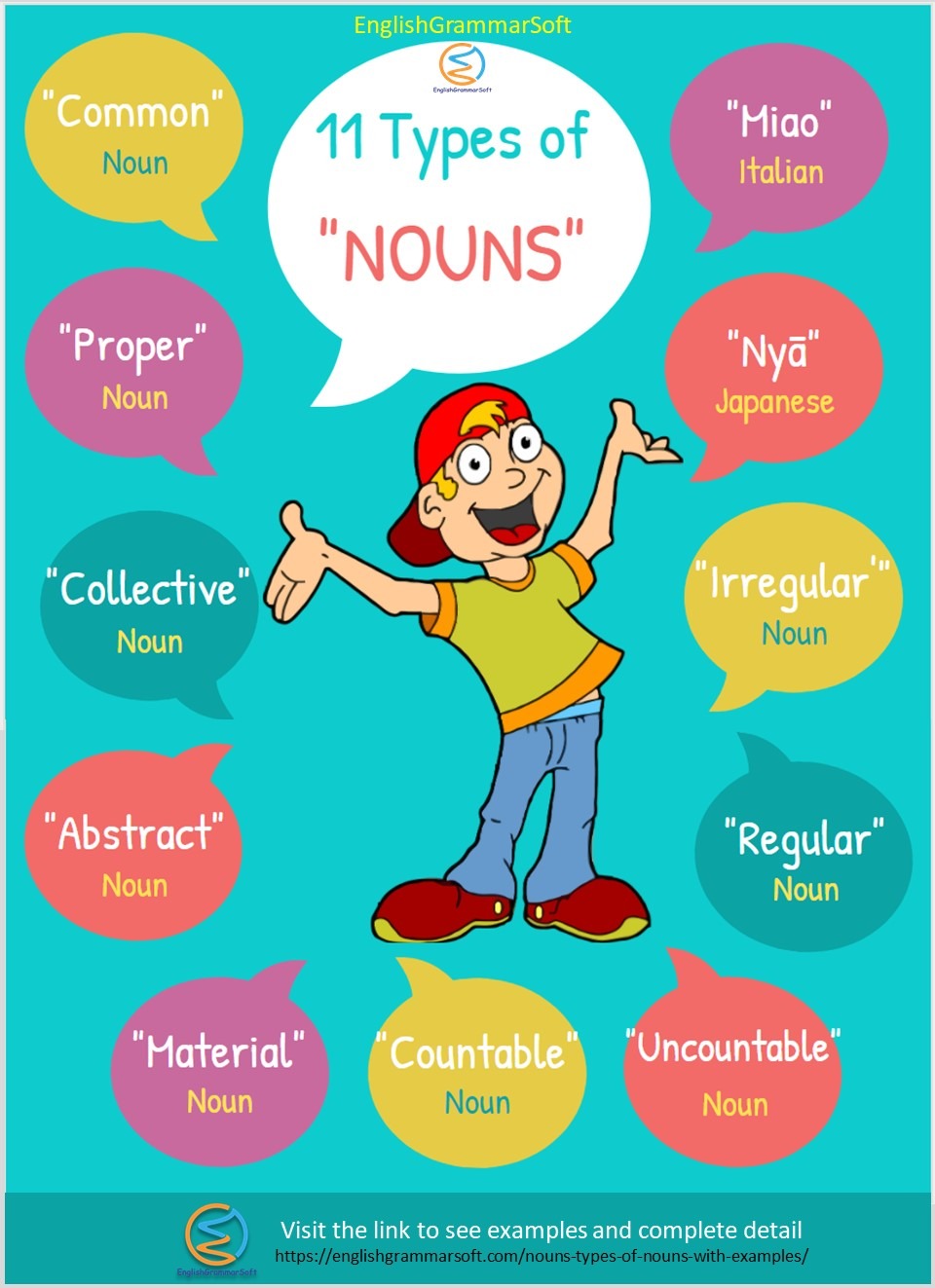
1 – Common Noun
A common noun is a noun that denotes a general or common person or thing. These nouns are names that can be used for any number of persons, places, or things of the same kind. For example, boy, dog, gun, book, chair, man, woman.
Examples in sentences
- She is a girl.
- He is a boy.
- I have a computer.
- She bought a book and a pen.
A noun that may occur with limiting modifiers (such as a or an, some, every, and my) and that designates any one of a class of beings or things.
First known use
It was firstly used in 1656.
General Rule for common noun
In a work, a common noun starts with a small letter and when it starts from the first word in a sentence, it is used in capital letter form.
Example
- My father and his friend plan to go to Murree.
- Cities must frame rules as per SOP of Government.
Similarly, when the common noun is used for the title of any movie or book, it is in capital form.
Examples
- “website” is common noun.
- “Leaf” the name of book.
2 – Proper Noun
The word “proper” means belonging particularly to somebody or something. The proper noun means the personal name of a place, person, or thing. These names usually do not belong to others of the same kind.
General Rule
Proper nouns always start with a capital letter; as Ali, Venice, Germany, etc.
Example
Shakespeare was born in London.
In the above sentence, Shakespeare refers to a particular person and London refers to a particular place.
I recite the Holy Quran.
Here Holy Quran is a proper noun.
Our city name is Islamabad.
In this sentence, Islamabad is a proper noun.
3 – Collective Noun
A collective noun is the name of a number of persons or things taken together and spoken of as one whole.
They are considered one unit and so they are singular.
Examples
Team, class, army, family, feet, herd, cattle, bunch, crowd etc.
Use of Collective Noun in Sentences
- The police dispersed the crowd.
The nouns police and crowd are used as the names of a number (or collection) of persons or things taken together and spoken of as one whole. They are called collective nouns.
- The jury gave the verdict.
- The crowd was very big.
- He is a respectable member of the faculty.
4 – Abstract Noun
A noun that denotes some quality, state or action. They cannot be physically touched.
Examples
Honesty, truth, pleasure, thought.
Use of abstract nouns in sentences
- Everyone loves him for his bravery. (Bravery refers to the quality of a person. It is called abstract noun)
- Happiness is a great blessing.
- One can lead a happy life even in poverty.
- Honesty is the best policy.
- Blood is thicker than water.
To give a clear picture of abstract nouns, see this table.
| States | Qualities | Actions |
| Childhood | Bravery | Hatred |
| Poverty | Darkness | Laughter |
| Sickness | Hardness | Love |
| Sleepy | Honesty | Movement |
| Youth | Wisdom | Theft |
5 – Material Noun
Things made of matter are called ‘material things’ and names were given to them are called material nouns. It also denotes the matter or substance of which things are made.
Examples
Glass, iron, clay, frost, rain, snow, wheat, sugar, tea, etc.
They may be placed in groups as follows
| Sr | Category | Examples |
| 1 | Metals | Iron, gold, platinum, silver |
| 2 | Products | Tea, sugar, rice, wheat |
| 3 | Geological bodies | Mud, sand, granite, stone |
| 4 | Natural phenomena | Rain, dew, cloud, frost |
| 5 | Manufacturers | Cloth, soap, rubber, paint |
6 – Countable Noun
The name of objects, people, etc. that we can count are called countable nouns. These nouns can become plurals also.
Examples
Students, animals, pencils, book, house, paper, etc.
Use of countable nouns in sentences
- The boys are waiting for you.
- Computers are available at low prices.
In the above sentences, there is an indication towards those boys and computers present there and which can be counted.
Forms of Countable Nouns
- Singular
The singular form refers to one thing or person. For example, a ball, the boy, one student.
- Plural
The plural form refers to two or more things or persons. Example balls, boys, students
Note
Singular countable nouns always take an article such as ‘a’, ‘another’, ‘every’, or ‘the’.
Examples
- She wrote a letter to her friend.
- He had read every book on the subject.
Plural count nouns can be used with or without an article. They do not take an article when they refer to things or people in general.
Example
- Multan is famous for mango gardens.
- Students shall work hard.
Plural countable nouns do take the article ‘the’ when they refer precisely to particular things or people.
Example
- The old friends are very helpful.
- The devoted teachers are highly respected.
When a count noun is the subject of a verb, a singular count noun takes a singular verb, and a plural count noun takes a plural verb.
Example
- He likes playing football.
- They like playing hockey.
7 – Uncountable Noun
Common things that cannot be counted are called ‘uncountable common nouns’. Articles ‘a’ and ‘an’ cannot be used with such types of things. These things cannot be written in plural form. This type of noun includes some ‘material nouns’ and all ‘abstract nouns’.
These are common nouns that cannot be count and cannot become plurals.
Examples
Water, sugar, machinery, knowledge etc.
Use of Uncountable Nouns in Sentences
- Bees collect honey.
- We take tea.
- We use sugar.
- Children play with sand.
- We drink water.
8 – Regular Noun
Regular nouns change from their singular forms to become plurals their spelling does not change. They become plural adding an ‘s’ such as dogs, cats, girls, animals, actors, bangles etc.
See the examples in the below table.
| Singular | Plural |
| Butcher | Butchers |
| Boy | Boys |
| Axe | Axes |
| Arrow | Arrows |
| Minute | Minutes |
| Nib | Nibs |
| Prize | Prizes |
| Picture | Pictures |
9 – Irregular Nouns
Irregular nouns change from their singular form to become plurals and their spelling are changed.
The plural forms of irregular nouns do not follow the standard rules of adding an ‘s’ to the end have instead special forms.
Nouns that end in “s, x, sh, chi, i, and o” form their plurals by adding ‘es’ to them.
| Singular | Plural |
| Actress | Actresses |
| Fox | Foxes |
| Lioness | Lionesses |
| Inch | Inches |
For nouns ending in ‘y’ with a constant before the last ‘y’, we change the last ‘y’ with ‘ies’ to convert them into plural form.
| Singular | Plural |
| Army | Armies |
| Lady | Ladies |
| Firefly | Fireflies |
| Pony | Ponies |
| Hobby | Hobbies |
Most nouns ending in ‘f’ or ‘fe’ are changed into ‘ves’.
| Singular | Plural |
| Calf | Calves |
| Thief | Thieves |
| Wife | Wives |
| Half | Halves |
| Knife | Knives |
Some nouns are changed to plural by changing one or more vowels in them.
| Singular | Plural |
| Foot | Feet |
| Louse | Lice |
| Goose | Geese |
| Mouse | Mice |
| Tooth | Teeth |
In some nouns, we add ‘en’ or ‘ren’ after the noun to make them plural.
| Singular | Plural |
| Brother | Brethren |
| Ox | Oxen |
| Child | Children |
Some nouns remain the same whether they are used as singular and plural both. Such as cod, fish, doze, news, hair and people.
Some words only occur in plural. Such as pliers, leggings, bowls, economics, tongs, billiards, tights, mathematics etc.
10 – Plural Nouns
The plural noun denotes more than one person, place or thing.
Examples
Boys, pencils, etc.
Complete the following sentences; inserting the plural forms of the nouns in brackets.
| The (girl) are playing with their (friend). | The girls are playing with their friends. |
| These (tree) shed their (leaf) in autumn. | These trees shed their leaves in autumn. |
| The (man) gather (strawberry) to make jam. | The men gather strawberries to make jam. |
| The (sheep) graze in the (field). | The sheep graze in the fields. |
11 – Possessive Noun
A possessive noun shows ownership. It is formed by adding an apostrophe.
Examples
Ahmad’s bike, Naeem’s sister
Noun Rule Possessive
Singular: a family of birds, à bird’s family
Plural: color of eggs, à egg’s color
Plurals not ending in ‘s’ (hat of men à men’s hats)
Use of Possessive Noun in Sentences
- There are three pencils in Ahmad’s pocket.
- Asad’s house is beautiful.
- Ahmad’s trouser is pink.
- I paid my visit to Naem’s dairy form.
- Rafia’s watch is very beautiful.

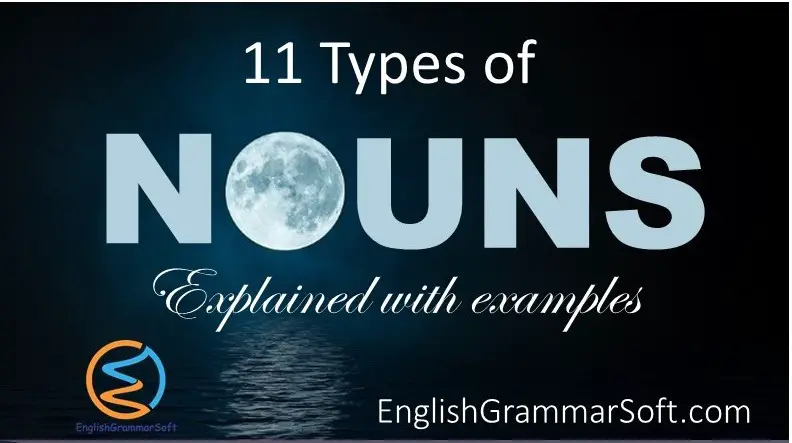
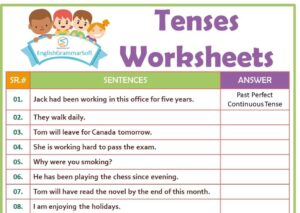
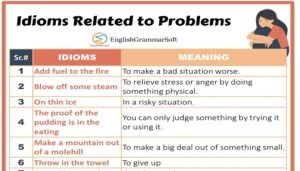
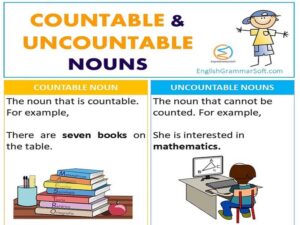

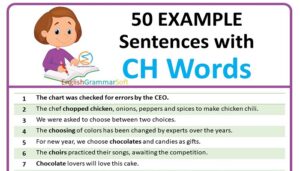

good job I really benefited a lot
We are glad that you are benefitted.
THIS LESSONS IS HELPFUL TO ME AS AN ENGLISH LEARNER